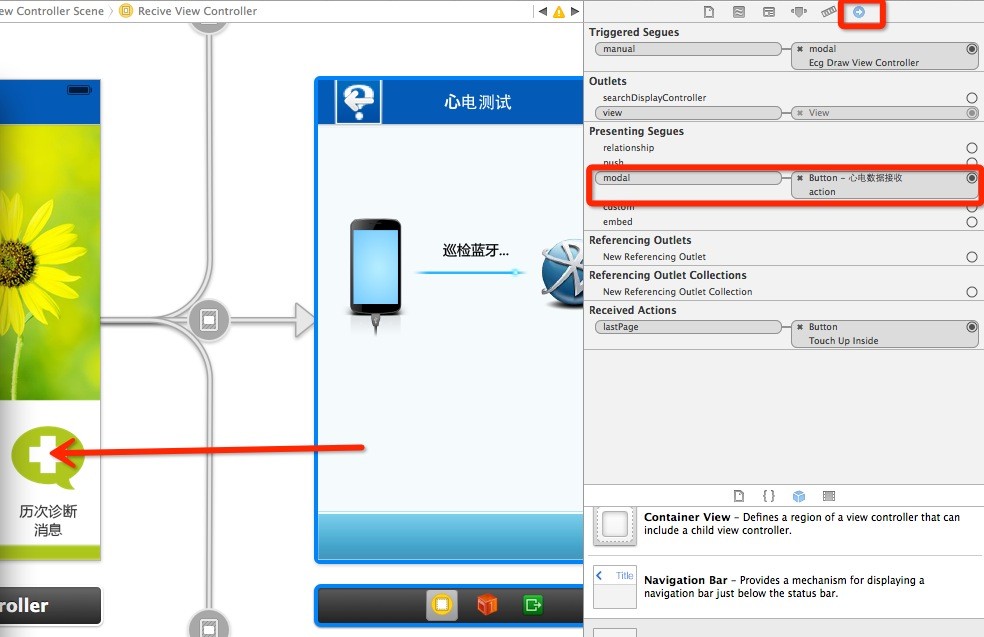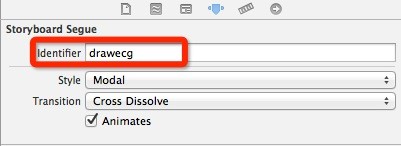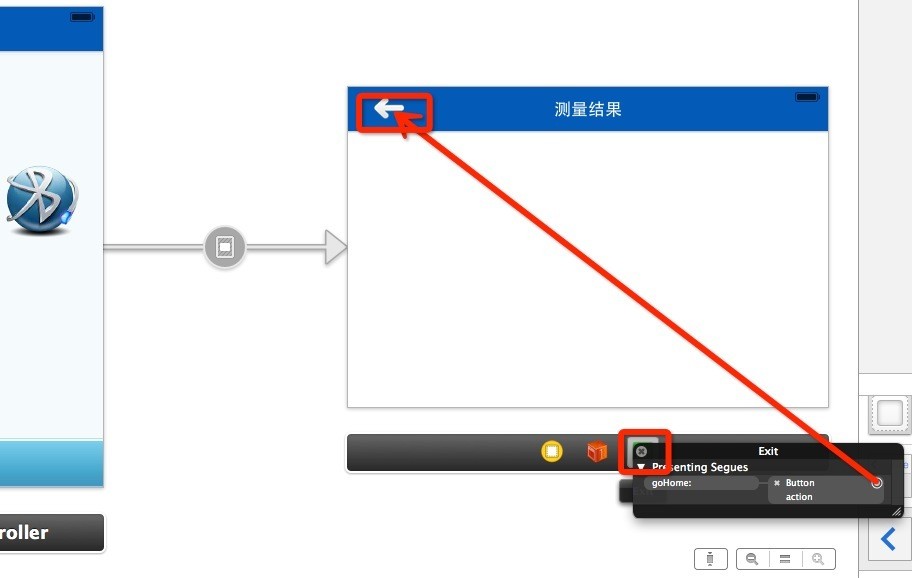IOS開發之——使用Segue在StoryBoard之間切換
阿新 • • 發佈:2019-02-19
使用Segue可以在ViewController之間來回切換,下面就來說下切換方法:
1. 使用點選按鈕進行切換
直接上圖,在需要切換的View屬性介面,點選Modal然後拉到前一個view介面或者是Button上
2. 手動進行跳轉
如果拉到了Button的TouchUpInside上,那麼點選左側按鈕的時候就會切到右邊的View,如果拉到了view上,就會連線Manual,在程式碼中實現跳轉
設定Segue的Indentifier屬性:
程式碼中手動進行跳轉:
//在viewDidAppear裡面新增觸發segue進行自動跳轉 -(void)viewDidAppear:(BOOL)animated { [self performSegueWithIdentifier:@"drawecg" sender:self]; }
注:在ViewDidLoad實現跳轉無效
3. 如何跳轉到任意一個頁面
在有可能進行上級跳轉的ViewController檔案中加上下面程式碼,函式名稱任起:
#pragma mark 定義這個函式,別的ViewController在Exit的時候就能直接跳到這了
- (IBAction)goHome:(UIStoryboardSegue *)segue
{
[[segue sourceViewController] class];
}
在想要跳轉view的Exit上右鍵,選擇這個goHome函式,拉到想要執行的按鈕上,就可以實現跳轉了
也可程式碼實現返回上一個頁面,登出當前頁面:
-(void)lastPage
{
NSLog(@"點選了上一個檢視按鈕");
[self dismissViewControllerAnimated:YES completion:^(void){
// Code
}];
}也可這樣實現:
// 獲取故事板 UIStoryboard *board = [UIStoryboard storyboardWithName:@"MainStoryboard" bundle:nil]; // 獲取故事板中某個View UIViewController *next = [board instantiateViewControllerWithIdentifier:@"Second"]; // 跳轉 [self presentModalViewController:next animated:YES];
當然,如果你使用Navigation Controller,使用Push進行連線,就不是上面的程式碼進行跳轉了:
跳轉到LandscapeViewController
//開啟一個橫屏介面
- (IBAction)openLandscapeControl:(id)sender {
LandscapeViewController *control = [[LandscapeViewController alloc]initWithNibName:@"LandscapeViewController" bundle:nil];
[self.navigationController pushViewController:control animated:YES];
}//返回前一頁
- (IBAction)clickBack:(id)sender {
[self.navigationController popToRootViewControllerAnimated:YES];
}




